- News
- Reviews
- Bikes
- Accessories
- Accessories - misc
- Computer mounts
- Bags
- Bar ends
- Bike bags & cases
- Bottle cages
- Bottles
- Cameras
- Car racks
- Child seats
- Computers
- Glasses
- GPS units
- Helmets
- Lights - front
- Lights - rear
- Lights - sets
- Locks
- Mirrors
- Mudguards
- Racks
- Pumps & CO2 inflators
- Puncture kits
- Reflectives
- Smart watches
- Stands and racks
- Trailers
- Clothing
- Components
- Bar tape & grips
- Bottom brackets
- Brake & gear cables
- Brake & STI levers
- Brake pads & spares
- Brakes
- Cassettes & freewheels
- Chains
- Chainsets & chainrings
- Derailleurs - front
- Derailleurs - rear
- Forks
- Gear levers & shifters
- Groupsets
- Handlebars & extensions
- Headsets
- Hubs
- Inner tubes
- Pedals
- Quick releases & skewers
- Saddles
- Seatposts
- Stems
- Wheels
- Tyres
- Health, fitness and nutrition
- Tools and workshop
- Miscellaneous
- Buyers Guides
- Features
- Forum
- Recommends
- Podcast
review
 2021 Vitus Dee VR City Bike Nexus - riding 1.jpg
2021 Vitus Dee VR City Bike Nexus - riding 1.jpg£429.99
VERDICT:
Fantastic urban bike with an impressive package at a very enticing price – possibly the perfect city runaround
Fast
Lively
Fun
Great spec
3-speed hub gear is limited
Not one for long or hilly rides
Weight:
12,900g
Contact:

This product has been selected to feature in road.cc recommends. That means it's not just scored well, but we think it stands out as special. Go to road.cc recommends
At road.cc every product is thoroughly tested for as long as it takes to get a proper insight into how well it works. Our reviewers are experienced cyclists that we trust to be objective. While we strive to ensure that opinions expressed are backed up by facts, reviews are by their nature an informed opinion, not a definitive verdict. We don't intentionally try to break anything (except locks) but we do try to look for weak points in any design. The overall score is not just an average of the other scores: it reflects both a product's function and value – with value determined by how a product compares with items of similar spec, quality, and price.
What the road.cc scores meanGood scores are more common than bad, because fortunately good products are more common than bad.
- Exceptional
- Excellent
- Very Good
- Good
- Quite good
- Average
- Not so good
- Poor
- Bad
- Appalling
The Vitus Dee VR City Bike Nexus might seem a bit of a mouthful to say, but it's commendably straightforward to ride and live with. In fact, thanks to its eager aluminium frame, going forwards is where it excels. Add in some surprise speccing highlights at a very reasonable price and you've got a most attractive hub-geared city bike.
Every now and then I test a bike where I genuinely don't know what its limitations are – the hybrid that's so speedy you could imagine doing a sportive on it; the gravel bike that doesn't seem fazed by any off-road excursion. The Vitus Dee VR City Bike Nexus is not one of those bikes – it's quite clear that you'd neither fancy long-distance riding nor red route-ing on this. However, it does what it sets out to do superbly well.
For urban sprints and fast-paced commutes, it is simply fantastic. The stiff frame is eager and rewarding to ride, not just in terms of effectively and efficiently translating your effort into forward motion, but the accurate and lively front end is supremely fun.
Balance and control is assured – in terms of weaving through the cityscape, it'll give e-scooters a run for their money. Positioning is good, too. It's a little bit head down and raring to go, rather than sitting up and admiring the view, but that really works in harmony with the rest of the bike.
Of course, there are downsides. For example, the Dee Nexus would be quite a tiring proposition on an extended ride, and the stiffness that is so welcome in getting you where you want to go would eventually become fatiguing. That said, the bike does do a very decent job of preventing one-off big hits knocking you off your rhythm, and it's actually a pretty smooth ride when conditions under tread are playing ball.
Frame
At the heart of this performance, the Dee's aluminium frame is a simple alloy design with nice round tubes used everywhere bar the chainstays. There's absolutely nothing ostentatious or innovative about it, but that's fine: the rider is benefiting from decades' worth of mountain-bike-inspired aluminium compact frame manufacturing, and it shows in the ride quality.
I would have thought Vitus might have been tempted to fit a suspension fork to complete the idea that this is an ultra-affordable Cannondale Bad Boy alternative, but I'm glad it didn't. The steel front end might be a trifle stiff over bumps, but it's strong and direct and gives the Dee Nexus a purposeful feel.
Both the rear dropouts and the fork have mounts for mudguards, which I think may well come in handy as this is built to be a dependable year-round workhorse. The bottle cage bolts will probably come in more useful for fitting accessories other than bottle cages, such as mini-pump mounts, and there are also rack mounts for extra utility.
If the all-up weight of 12.9kg is a little heavier than you'd imagine, I'd put the reason for that down to the rear hub gear. Speaking of which...
Drivetrain
Anybody familiar with my reviews of other hub-gear-shod bikes will know that I tend to moan about them. However, it's time to change that broken record.
To be fair, part of the reason for my disdain for lower-rent hub gears is that manufacturers tend to fit them to models – quite often steel frame bikes – in an attempt to offer some sort of faux boutique or faux custom option for cyclists who 'know what a good sensible bike needs'. Brands then charge a premium for such models. Particularly in the case of Shimano's Nexus 7 or 8-speed hub, I don't believe that supplement is justified over a good derailleur gearset (which is almost any derailleur gearset these days).
However, in the Dee's case, the Nexus 3-speed hub feels much less like it's been specced as a fancy upgrade, and more because it's simply good enough. On a £429.99 bike – which, as we'll see, also boasts Shimano hydraulic disc brakes – you hardly feel like you're being overcharged for the privilege.
In action, truthfully, the Nexus 3-speed isn't super satisfying. The twist shift is simple to use and yes, you can change gear while stationary, such as at traffic lights. But when the system is under load – which is quite often with just three gears to choose from – shifts can be hesitant and clicky-clacky until you ease up a bit and allow the hub to catch up.
On the flip-side, with just three gears to choose from you're not really tempted to flick up and down the ratios as you would with seven or eight ratios, so you'll be settling into a groove much more readily, at which point the hub is fine.
In terms of performance, the Nexus hub's easiest ratio in combination with the 38-tooth single-ring chainset will handle longer, moderate climbs better than short, sharp efforts, but this is very much a bike set up for flat routes where possible. With the Nexus's biggest ratio, you can get up a decent head of steam.
Brakes
The Dee Nexus comes complete with a set of Shimano M400 hydraulic discs, which is a very nice surprise on a bike at this price point. I'm a huge fan of Shimano's entry-level M200 brakes and these Acera-level options should be a cut above.
In truth, I didn't notice much difference in performance terms, and the pads do take a little while to bed in. But once everything is working as it should, they offer good outright power and, more importantly, very accurate modulation. This means you can tailor your braking input to suit conditions. For city riding on the Dee Nexus's very eager frame, they're just about perfect.
Wheels and tyres
Obviously, with that big ol' Nexus hub at the back, the Dee Nexus's wheelset is never going to be the lightest option. However, the Vitus Shining 29'er aluminium rims laced with 32 spokes seem well up to the task of hauling you about and don't dampen the rest of the bike's enthusiasm.
The front hub is from Shimano's Tourney series, so that is a solid bit of kit.
Tyre choice, though, is slightly too dependable in my opinion. There's certainly nothing wrong with the Schwalbe Land Cruiser Pluses on paper – they come with Puncture Guard tech and competent traction on a variety of surfaces. The smooth central tread rolls decently on road, too.
However, I'd question why this bike needs 47mm tyres or even quite such comprehensive multi-terrain grip. Because of the stiff nature of the Dee, I can't see it being taking too far from asphalt. I think the 35mm version of these Schwalbes would be more than good enough, although I'd personally be tempted to fit a thinner, slightly slicker tyre altogether.
Finishing kit
If the Shimano brakes are perfect for urban duties, that performance is mirrored by the rest of the finishing kit. The lithe Vitus flat handlebar seems almost too skinny initially but you quickly realise it works like a graphic artist's fine-nib pen, helping you to draw your line through the urban scenery.
The equally minimal but ultra-secure bar grips only add to this.
I'm not normally a fan of two-bolt stems, but the Vitus-branded kit here is solid enough and fits the bike's general pared-back demeanour.
Special mention should go to the Nukeproof Neutron saddle, which looks a classy bit of kit and performs really well. Again, its sporty nature fits the speedy theme of the bike, but it also manages to damp a decent amount of road sting that buzzes up through the frame. Of course, the best thing is to get out the saddle and let your legs soak up the big bumps, but I was very pleasantly impressed by the Neutron.
Value
Let's look at the Dee Nexus from two angles: first, compared against other urban bikes with hub gears.
Of the bikes we have tested, there's the sedate Electra Loft 7i with a Shimano Nexus 7-speed hub for £875. Or there's the Canyon Commuter 5.0 with Nexus 8-speed hub for £1,499. Or there's the Marin Muirwoods RC, again with Nexus 8-speed hub, for £1,045. The Dee's Nexus 3-speed is significantly less capable than these – on paper at least – but then £429.99 is less than half the price of any of these bikes. And it certainly doesn't feel like less than half the bike.
> Buyer’s Guide: 15 of the best hybrid bikes
Comparing it to other £400-odd bikes, I thought the Dawes Discovery 201 was a really fine budget ride for £369.99, but that's now £469.99. Meanwhile, the Specialized Sirrus Alloy came with a great frame but was let down by its spec for £425 (and is now £450). So, again, the Vitus can more than hold its own even in this more competitive market. I think it's safe to say, it's a great package at a very good price.
Conclusion
I'm a fan of the rock band Kiss, who are prone to waxing lyrical about subjects far beyond their specialist area of rock'n'rolling all night and partying every day. I remember in one interview when talking about dealing with bandmates, frontman Paul Stanley said something along the lines of, 'You have to respect not just other people's talents, but also their limitations.'
That's a sentiment that seems absolutely relevant to Vitus's Dee VR City Bike Nexus. Yes, it has its limitations, not least the limited selection of gears, and its stiff ride won't be for everyone. But when it comes to doing what it sets out to do – which is to get you across town, dependably, at speed, and even allow you to enjoy the experience – it's really very hard to fault.
Verdict
Fantastic urban bike with an impressive package at a very enticing price – possibly the perfect city runaround
If you're thinking of buying this product using a cashback deal why not use the road.cc Top Cashback page and get some top cashback while helping to support your favourite independent cycling website
road.cc test report
Make and model: Vitus Dee VR City Bike Nexus
Size tested: M/L
About the bike
List the components used to build up the bike.
Vitus lists:
Frame: 6061-T6 aluminium with mudguard mounts and rack mounts
Fork: Hi-ten steel, 1 1/8in Steerer, mudguard mounts
Chainset: Shun 38T, 170mm
Gearset: Shimano Nexus 3-speed hub gear with Shimano Nexus grip shift
Cassette: Shimano 18T
Brakes: Shimano MT400-series hydraulic disc
Front hub: Shimano HB-TX505
Rear hub: Shimano Nexus 3-Speed hub gear
Rims: Vitus Shining DC20, 29er, double wall, 32-hole
Spokes: Steel 16mm Nipple
Tyres: Schwalbe Land Cruiser Plus 47mm, Puncture Guard, Twin Skin
Handlebar: Vitus 6061 aluminium flat bar, 6-degree backsweep
Stem: Vitus 6061 aluminium, 90mm, 15 Degree
Saddle: Nukeproof Neutron
Seatpost: VITUS 6061 aluminium
Tell us what the bike is for and who it's aimed at. What do the manufacturers say about it? How does that compare to your own feelings about the bike?
This is a bike designed specifically for city cycling. Vitus says: "Dee is a smooth-rolling, big-wheel utility bike, perfect for everything from commuting to cruising around town or parks. Featuring reliable Shimano gears, this aluminium utility bike is a no-nonsense approach to cycling, featuring reliable components. The large 29er wheels ensure this bike rolls effortlessly over rougher roads or off-road trails. The dependable Shimano Nexus 3-speed internal hub gears result in a super low maintenance cycling experience. The addition of Shimano's MT400 hydraulic disc brakes give you heaps of control and a confidence inspiring ride. Schwalbe Land Cruiser Plus tyres provide just the right amount of grip for tackling varied terrain, whilst still having a tarmac friendly rolling resistance for effort-free cruising, and feature their Twin-Skin punchture guard protection. An aluminium handlebar and stem keep the weight down, along with the comfort of a Nukeproof Neutron saddle."
Where does this model sit in the range? Tell us briefly about the cheaper options and the more expensive options
The Dee VR Nexus is top of Vitus's three-model utility bike range, with the Dee Tourney featuring a derailleur gearset at £349.99, and the singlespeed and rim-braked Vee SS at £299.99.
Frame and fork
Overall rating for frame and fork
7/10
Tell us about the build quality and finish of the frame and fork?
I don't think Vitus would argue that this isn't the most advanced frameset in the world, but there's certainly nothing wrong with it. The frame's aluminium tubes are mainly round with very little manipulation other than at the chainstays. The fork is a straight-legged steel affair. It's all finished competently, if not particularly exciting.
Tell us about the materials used in the frame and fork?
6061-T6 aluminium in the frame; hi-ten steel for the fork.
Tell us about the geometry of the frame and fork?
By modern compact frame terms, this is pretty much perfect middle-of-the-road geometry.
How was the bike in terms of height and reach? How did it compare to other bikes of the same stated size?
I needed a fair bit of seatpost to get the saddle height right for me (height 6ft), although the markers on the seatpost showed there was still more in reserve.
Riding the bike
Was the bike comfortable to ride? Tell us how you felt about the ride quality.
This is not an insulating ride that cossets you from all unpleasantness under tread, but it's not harsh. As with the geometry, it's what you'd expect from a typical alloy frame. Over an hour-long ride, for example, it's certainly comfortable enough.
Did the bike feel stiff in the right places? Did any part of the bike feel too stiff or too flexible?
Stiffness is one of this bike's strengths – it was very impressive.
How did the bike transfer power? Did it feel efficient?
Power transfer was excellent – it's an eager and rewarding machine to pedal.
Was there any toe-clip overlap with the front wheel? If so was it a problem?
No.
How would you describe the steering? Was it lively neutral or unresponsive? Pretty lively.
Tell us some more about the handling. How did the bike feel overall? Did it do particular things well or badly?
This is quite a fun bike to ride – steering is fast and direct.
Which components had the most effect (good or bad) on the bike's comfort? would you recommend any changes?
The sporty Nukeproof saddle did a great job of just adding a little extra comfort – I was impressed. The voluminous tyres probably helped, too, but I'd be tempted to replace them to maximise other aspects of performance.
Which components had the most effect (good or bad) on the bike's stiffness? would you recommend any changes?
No changes recommended.
Which components had the most effect (good or bad) on the bike's efficiency? would you recommend any changes?
I'm always a bit doubtful about the absolute efficiency of hub gears, but that's just me.
Rate the bike for efficiency of power transfer:
8/10
Really good.
Rate the bike for acceleration:
8/10
Gets up to speed well.
Rate the bike for sprinting:
7/10
Pretty good for a flat-bar hybrid.
Rate the bike for high speed stability:
8/10
Stability is good generally.
Rate the bike for cruising speed stability:
9/10
Rate the bike for low speed stability:
9/10
Rate the bike for flat cornering:
8/10
Rate the bike for cornering on descents:
8/10
Rate the bike for climbing:
6/10
The bike itself is fine for climbing. The drivetrain, not so much.
The drivetrain
Rate the drivetrain for performance:
7/10
It's good enough and easy to maintain, so ideal for city life.
Rate the drivetrain for durability:
8/10
As a hub gear, it requires no maintenance. But if it goes wrong, don't expect that you'll be able to fix it.
Rate the drivetrain for weight:
4/10
Hub gears aren't light, especially not bottom-of-the-range Shimano Nexuses.
Rate the drivetrain for value:
8/10
This is actually very good – a three-speed hub gear on an otherwise great bike for £430 is impressive.
Tell us some more about the drivetrain. Anything you particularly did or didn't like? Any components which didn't work well together?
In this context and for this specific purpose, the Nexus three-speed is a fine option. It is a bit laggy when it come to gear changes under pressure, but you can quickly adapt your style to accommodate this.
Wheels and tyres
Rate the wheels for performance:
7/10
Absolutely fine.
Rate the wheels for durability:
8/10
They look sturdy.
Rate the wheels for weight:
5/10
Not the lightest wheelset, especially with the hub gear.
Rate the wheels for comfort:
7/10
I thought they contributed well to the overall ride quality.
Rate the wheels for value:
7/10
A little above what you'd expect at this point in the market.
Rate the tyres for performance:
7/10
Certainly good enough, with good – possibly too much – grip.
Rate the tyres for durability:
9/10
They feature Schwalbe's Puncture Guard protection tech, too.
Rate the tyres for weight:
6/10
Like the wheels, they're not light but they didn't drag the overall performance down.
Rate the tyres for comfort:
8/10
High volume – 47mm – means that these certainly helped take the edge off road imperfections.
Rate the tyres for value:
8/10
Very decent third-party tyres on a low-cost bike.
Tell us some more about the tyres. Did they work well in the conditions you encountered? Would you change the tyres? If so what for?
My personal opinion is that they were unnecessarily wide and chunky – considering this bike shines in urban areas and particularly on the road, I'd be tempted to forgo the multi-terrain grip and stick on some semi-slicks.
Controls
Rate the controls for performance:
8/10
Really direct and assured performance from the controls.
Rate the controls for durability:
7/10
I questioned a two-bolt faceplate stem, but this one is sturdy.
Rate the controls for weight:
8/10
Quite light and refined for a low-cost city bike.
Rate the controls for comfort:
9/10
Saddle and bar grips are excellent.
Rate the controls for value:
9/10
I was impressed at this price.
Tell us some more about the controls. Any particularly good or bad components? How would the controls work for larger or smaller riders?
All the finishing kit is really good on its own terms, but even better when you consider the bike's overall price.
Anything else you want to say about the componentry? Comment on any other components (good or bad)
Shimano MT400 hydraulic disc brakes are an awesome speccing choice at this price. They are excellent brakes.
Your summary
Did you enjoy riding the bike? Yes
Would you consider buying the bike? Yes
Would you recommend the bike to a friend? Yes
How does the price compare to that of similar bikes in the market, including ones recently tested on road.cc?
Of hub gear bikes we have tested, the sedate Electra Loft 7i with a Shimano Nexus 7-speed is £875. The Canyon Commuter 5.0 with Nexus 8-speed is £1,499. And the Marin Muirwoods RC, again with Nexus 8-speed, is £1,045.
Comparing it to other £400-odd bikes, there's the Dawes Discovery 201 for £469.99 or the Specialized Sirrus Alloy for £450. In both categories, the Vitus more than holds its own.
Rate the bike overall for performance:
8/10
Rate the bike overall for value:
8/10
Use this box to explain your overall score
While I'm not always a fan of hub gears, the Vitus Dee Nexus is the best example I've tested of a bike that really uses them to their strengths – the low-maintenance, easy-to-use nature is perfect for city journeys. Away from the drivetrain, this a fantastic complete package, with an eager and stiff frame ideal for urban cycling, excellent Shimano hydraulic disc brakes, and even a very impressive selection of finishing kit. Perhaps most importantly, though, I just really enjoyed riding it.
About the tester
Age: 39
I usually ride: Islabikes Beinn 29 My best bike is: 25-year-old Dawes Galaxy
I've been riding for: Over 20 years I ride: Most days I would class myself as: Experienced
I regularly do the following types of riding: commuting, touring, sportives, general fitness riding, mtb, Leisure
Latest Comments
- Smoggysteve 0 sec ago
Sorry, I don't buy the argument about large cars. I drive an Audi Q5, a car I bought purely due to my partner having a disability. It's easy to...
- perce 14 min ago
Aw bless. My wife and I usually go to our local M&S cafe once a week for a bite to eat, usually Wednesday but sometimes Thursday. I usually...
- Exup 1 hour 29 min ago
At least some justice is being done........
- BIRMINGHAMisaDUMP 1 hour 39 min ago
I imagine the Police treat bike theft as an insurance issue rather than a criminal issue. Can't blame them to be honest. The best thing is to use...
- David9694 2 hours 6 min ago
Police launch investigation into destruction of barber shop in Hythe High Street...
- barbarus 10 hours 8 min ago
I live right in the centre of this. It's really heartening to read that there are people in favour....
- ktache 10 hours 36 min ago
I'd love for them to put a number on that "inappropriate speed"
- Nick T 11 hours 29 min ago
They need to use some harder material for the cleat retention clip really, that's worn out long before any bearing has had a chance to fail on...
- yiipeeia 14 hours 19 min ago
I am 67 and I cycle with two groups during the year The Haddenham Easyriders International who ride during the summer on Thursday evenings, and The...
- don simon fbpe 14 hours 30 min ago
Brexit is a wholly selfish act....
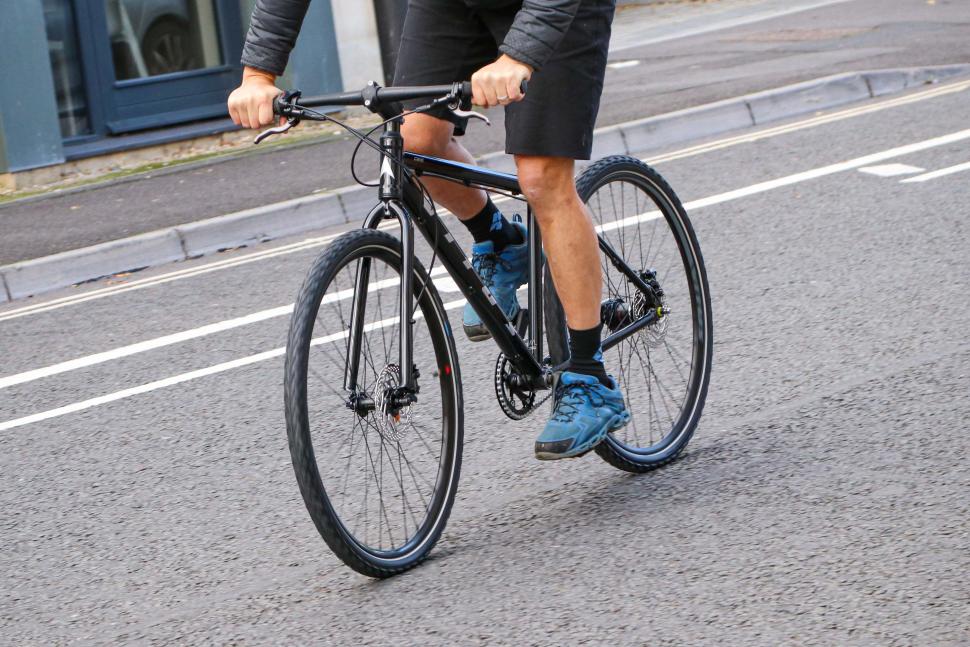
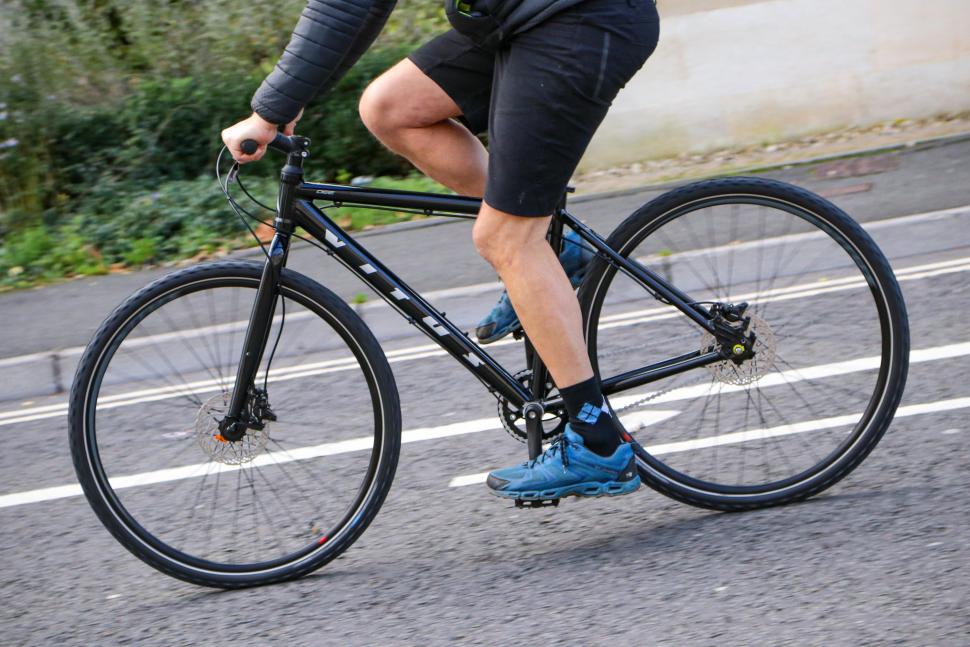



































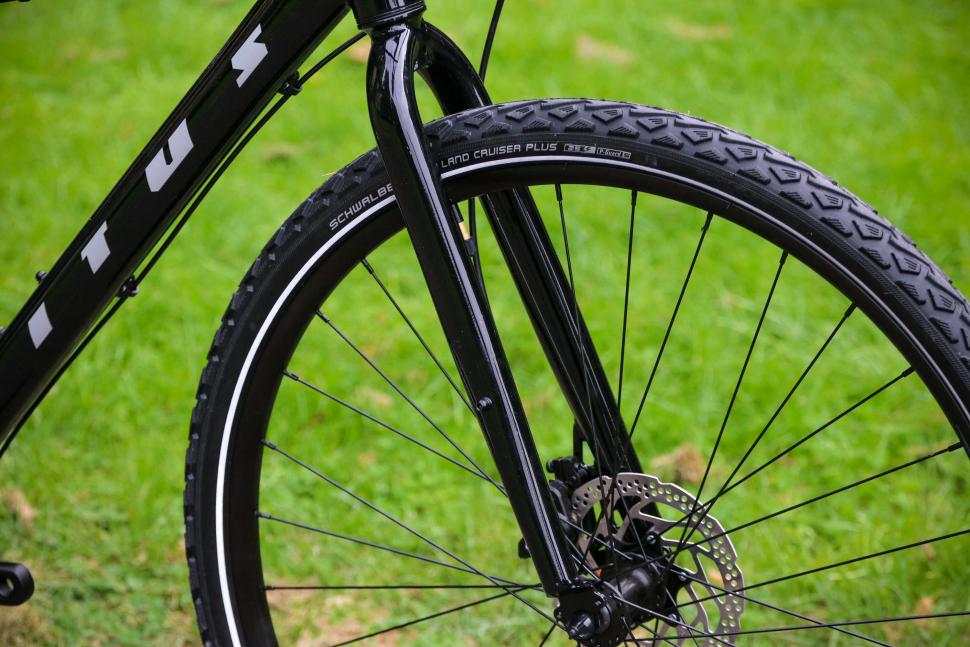
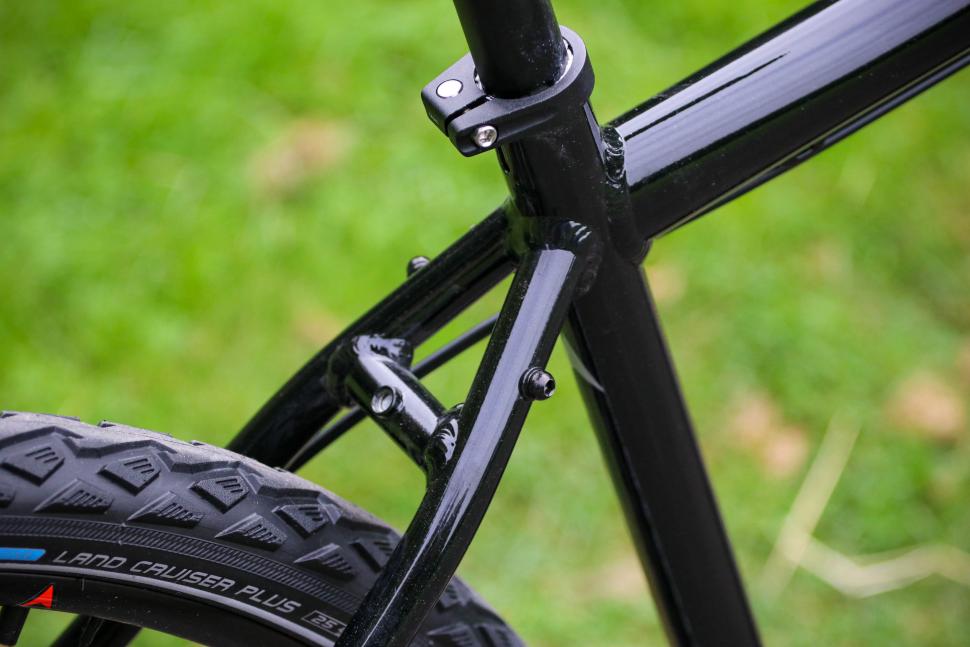
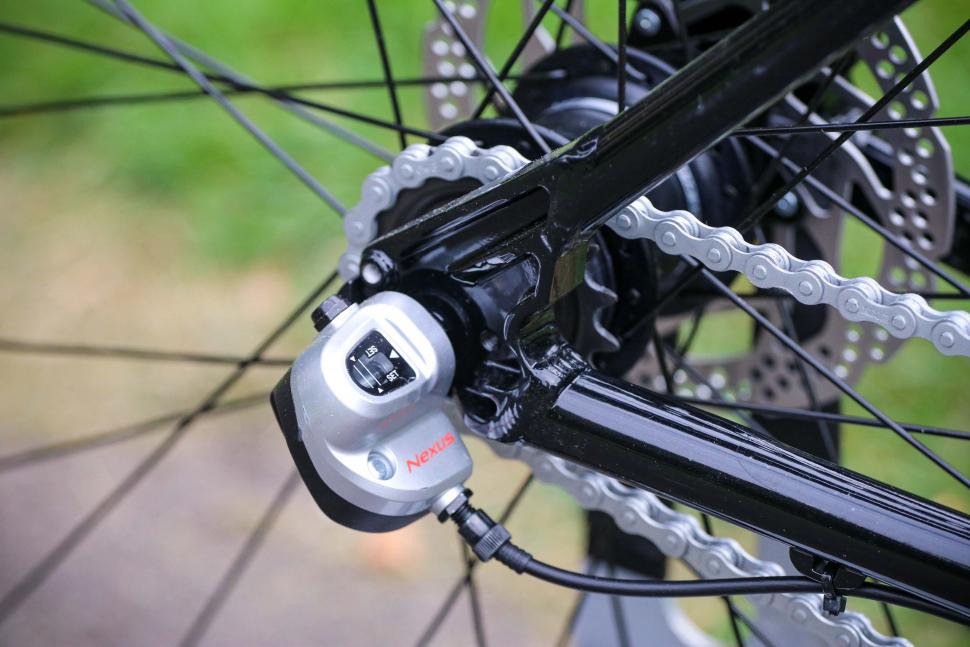
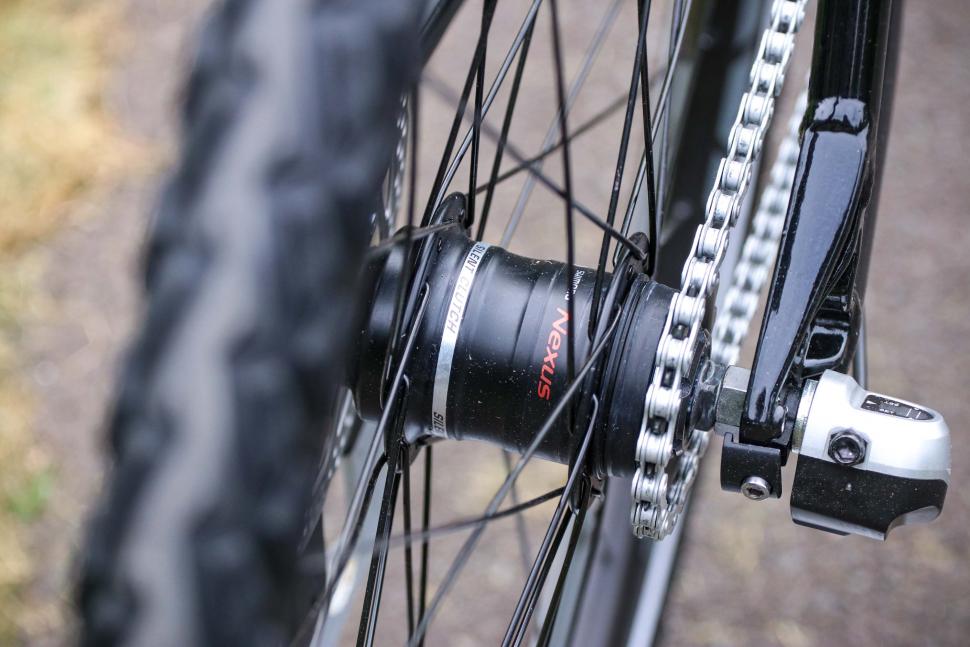
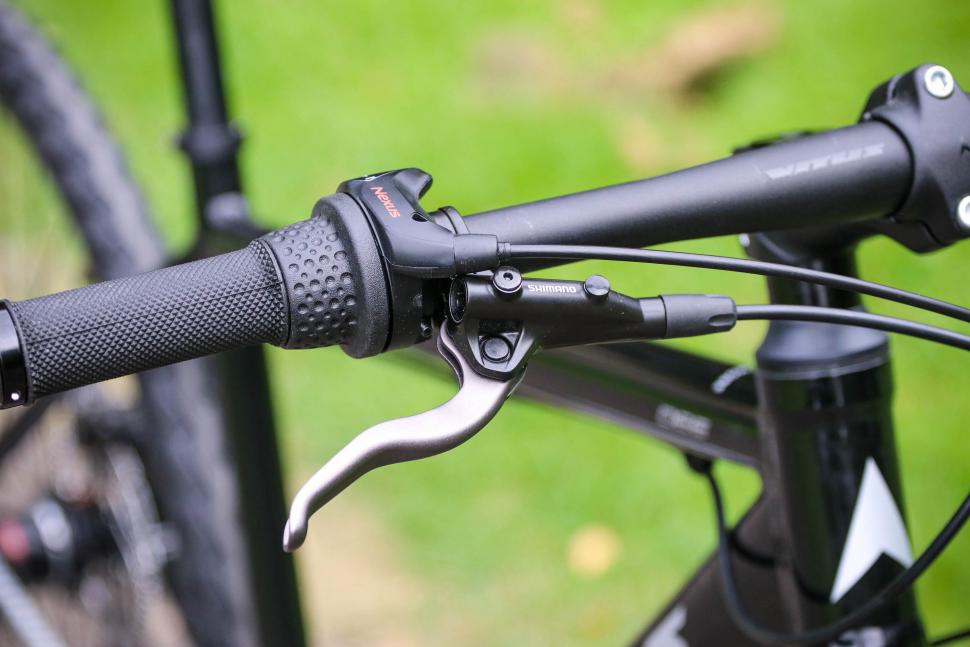
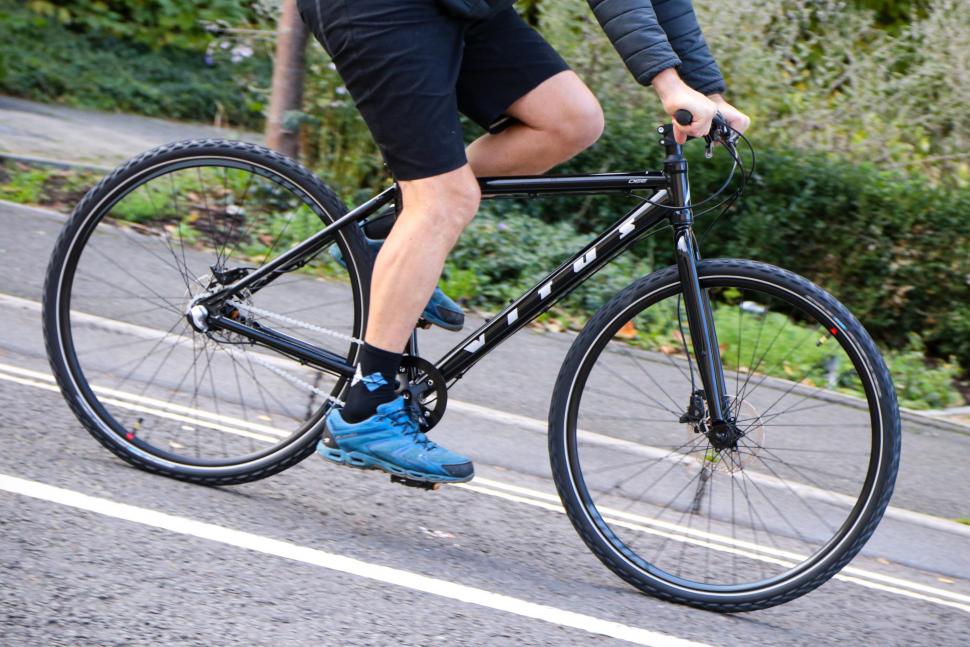
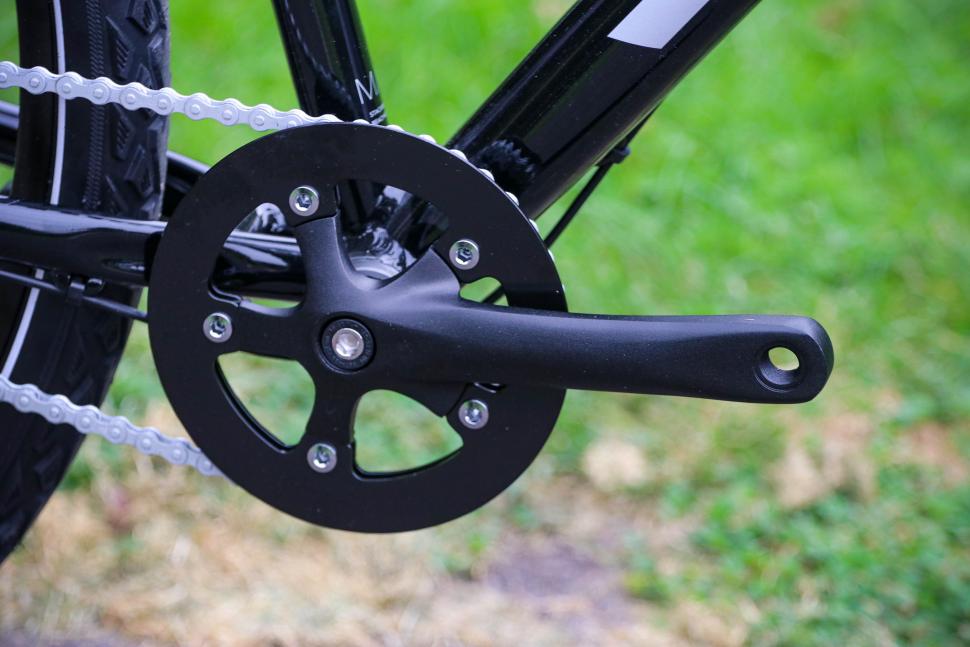
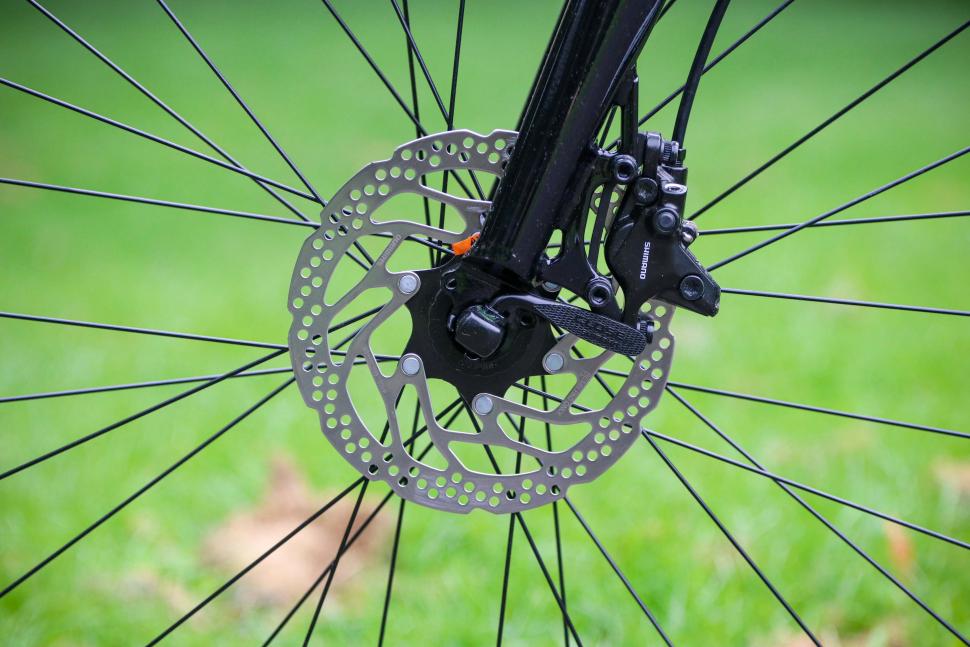
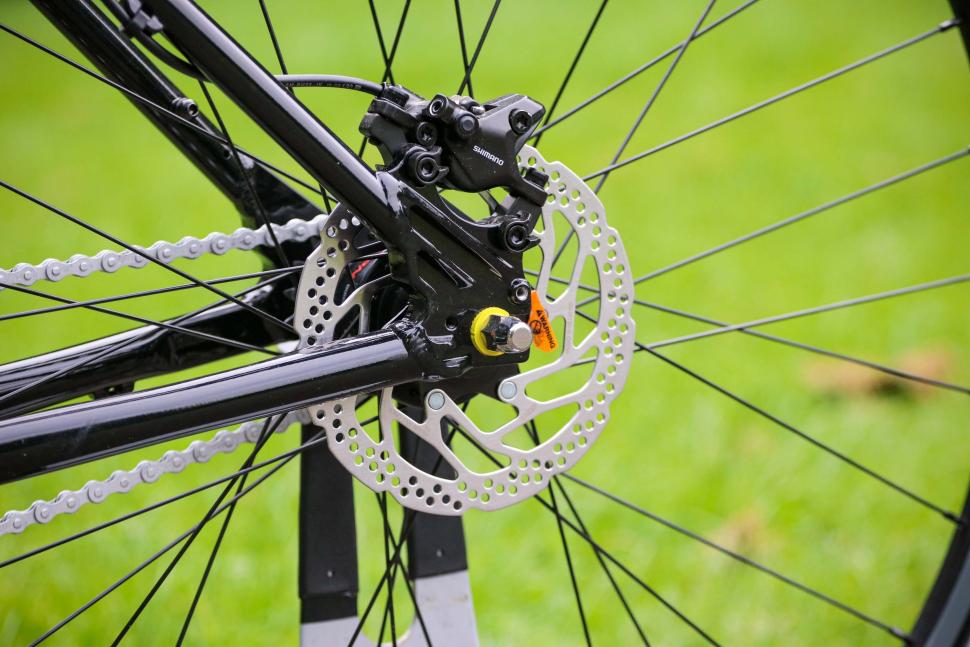
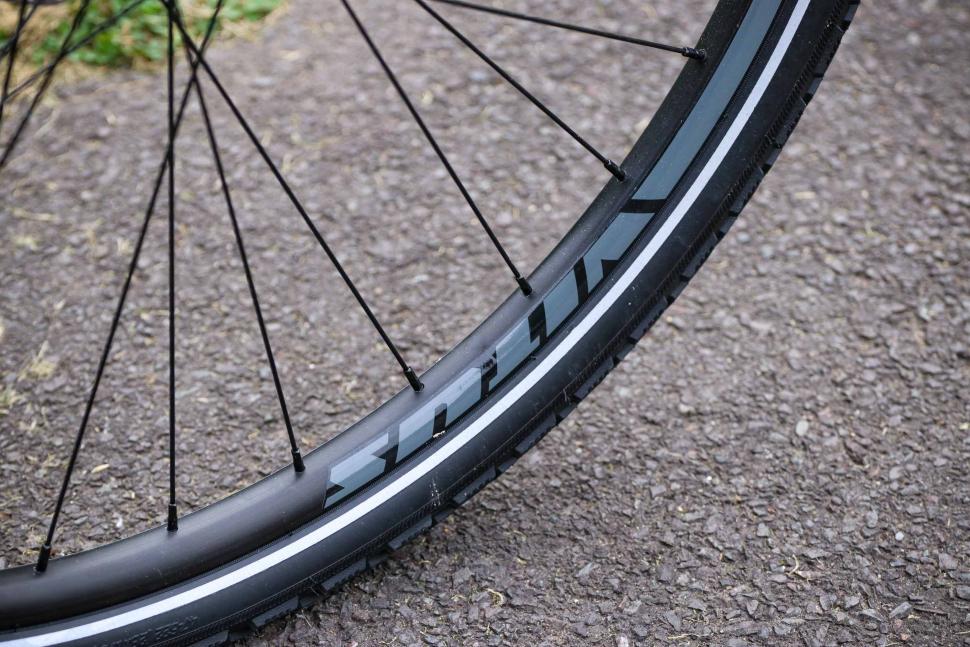
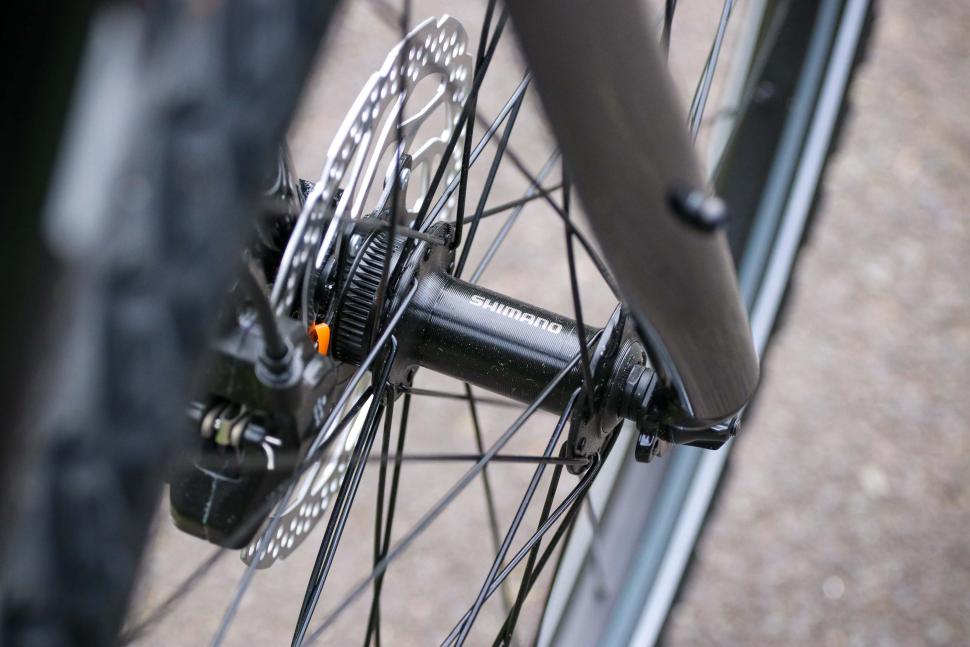
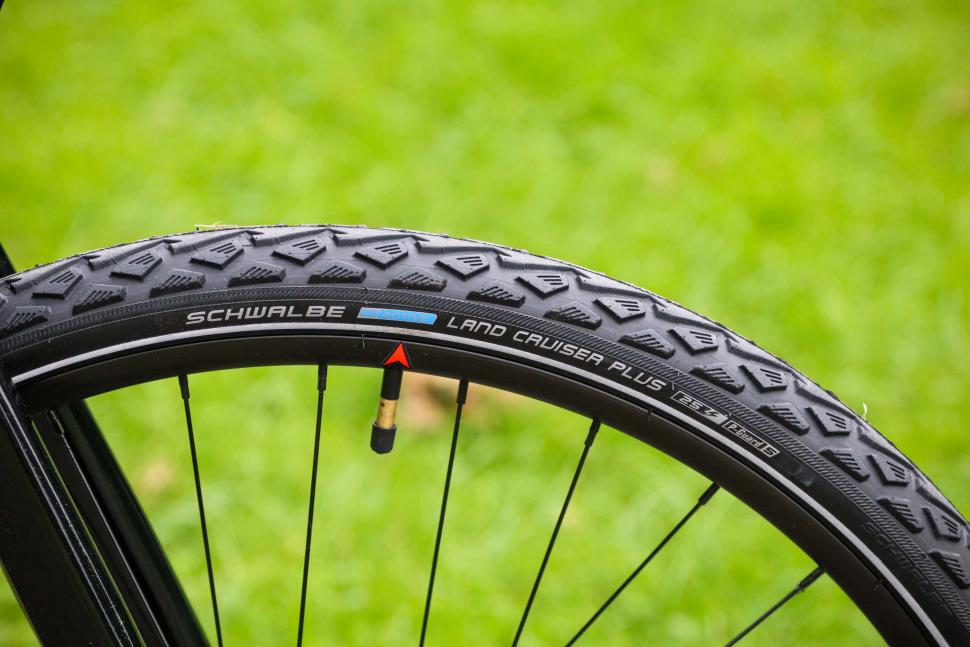
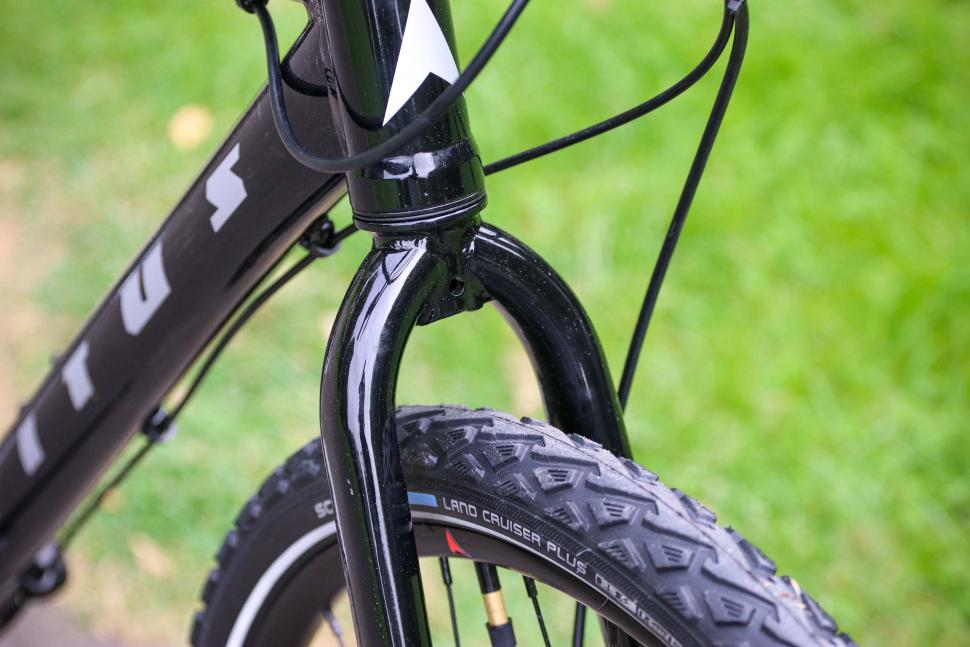

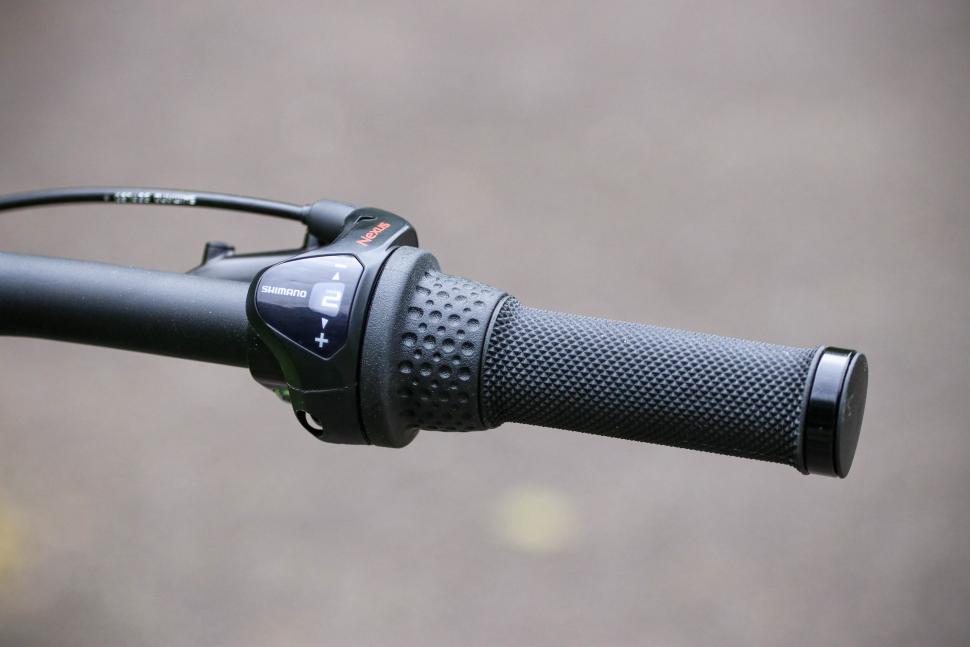
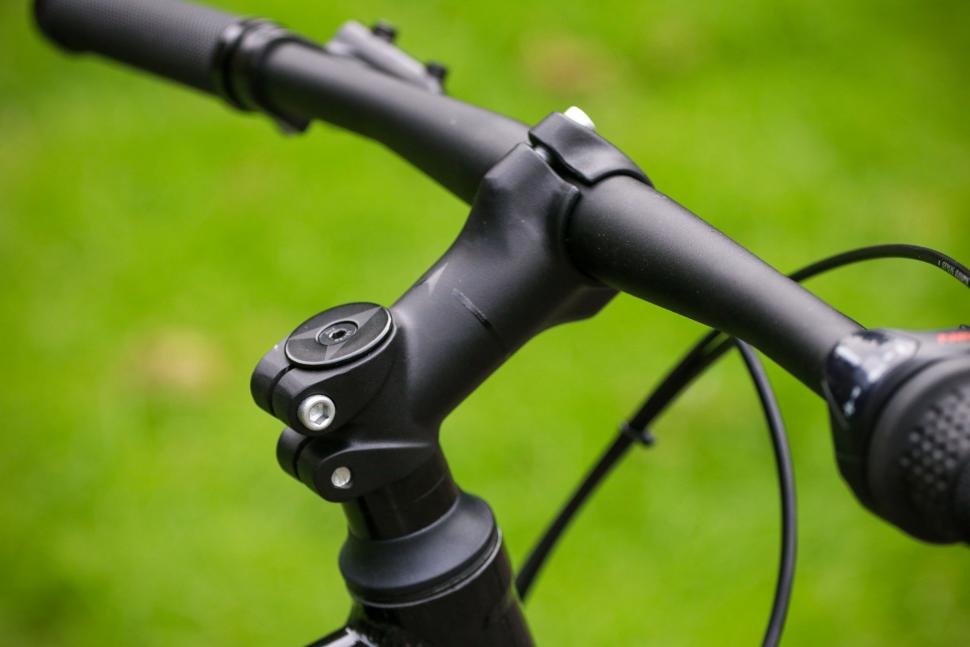
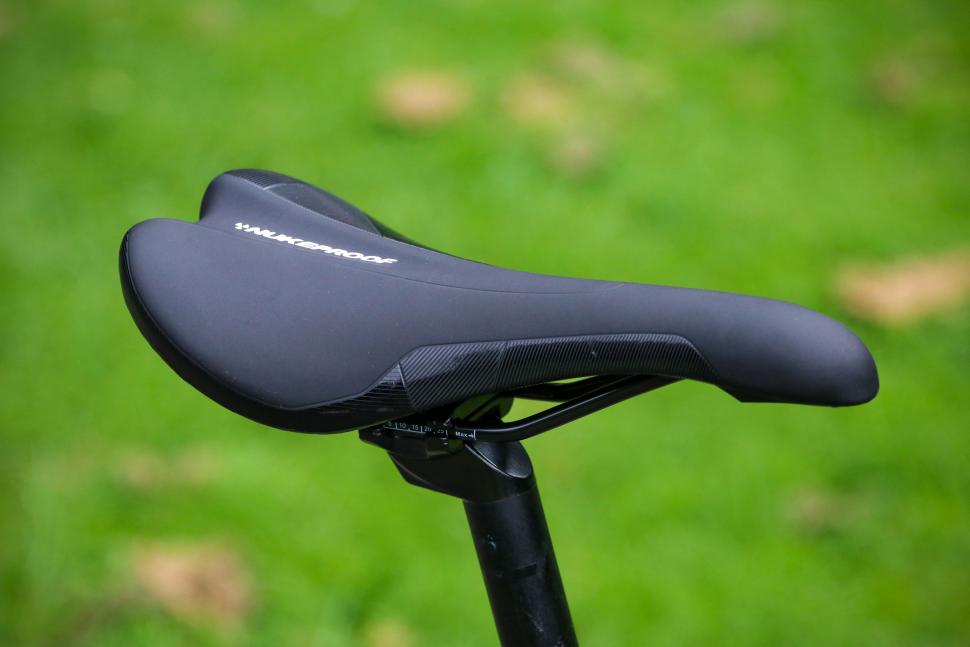
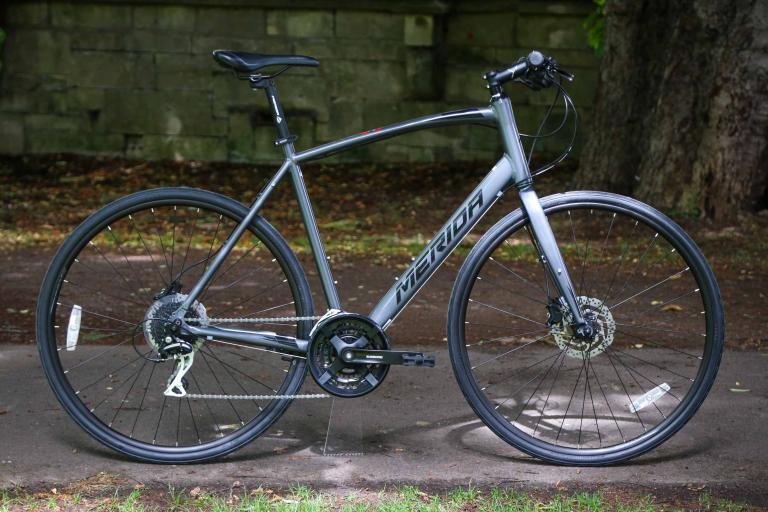
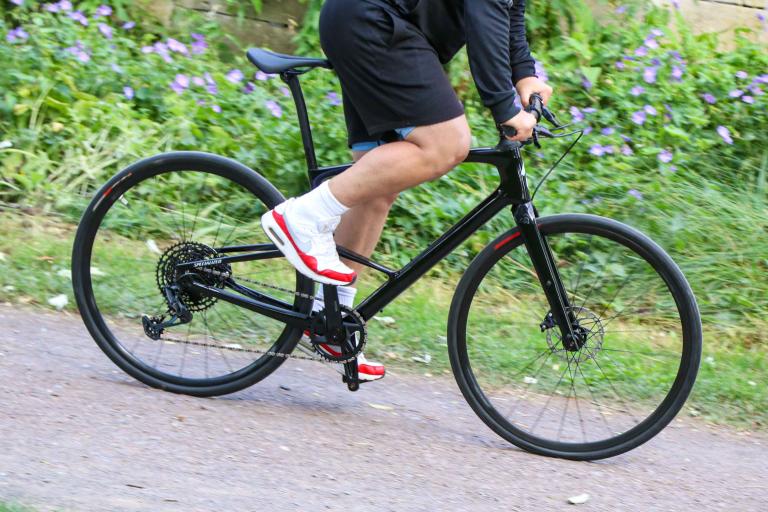
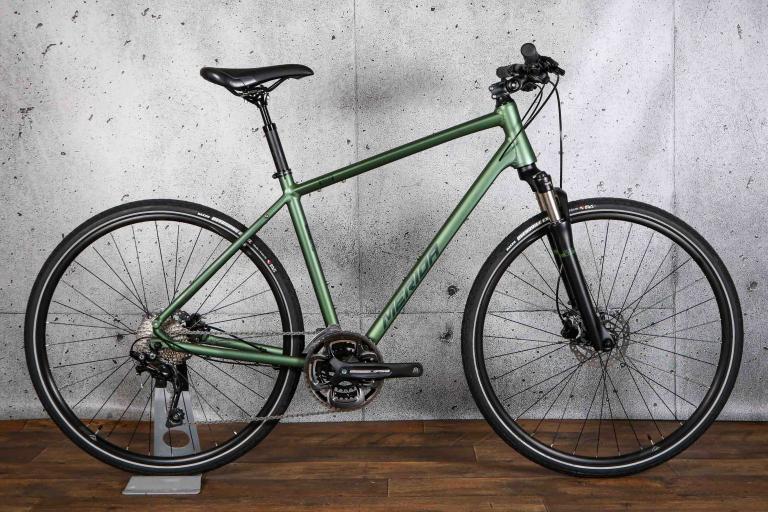
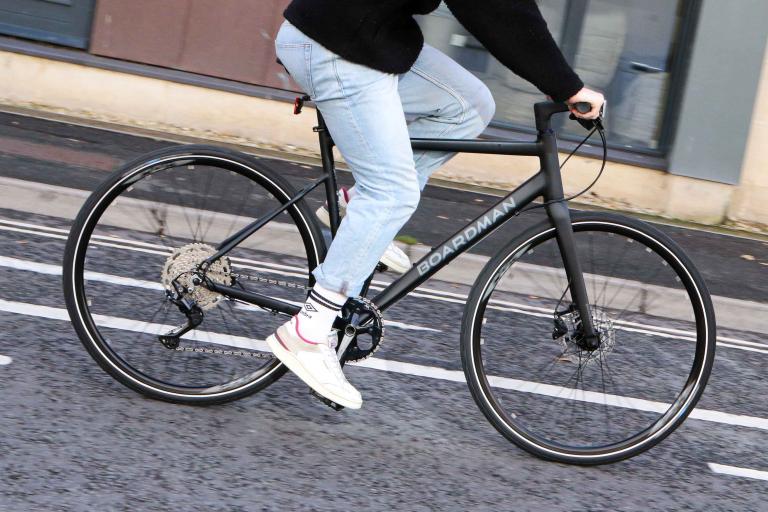
Add new comment
1 comments
I have a set of land cruisers on my mtb rat bike. They are excellent towpath tyres or any other gravelly cycle path.